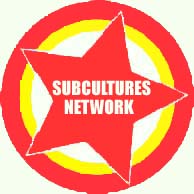As part of my other 80s work I’m involved in a series of events organised through an AHRC funded network, Subcultures, Popular Music and Social Change. The first event which will be held in Bristol seems particularly relevant to Observing the 80s.
Subcultures Network: The Interdisciplinary Network for the Study of Subcultures, Popular Music and Social Change Announce:
A One Day Symposium: “Re-telling the Riots! Music, Community and Civic Unrest”
Date: 18th October 2013, 9.30am registration, 10.00am first session
Venue: St Werburghs Centre, Horley Road, St Werburghs, Bristol, BS2 9TJ
Punky Reggae After Party, featuring Ruts DC, Jashwha Moses and Idiot Strength. The Exchange, 72-73 Old Market St, Bristol, Avon BS2 0EJ, 7.30pm – 1.00 am
This symposium will explore the histories and experiences of living in British cities to examine the role of music and music scenes in the urban unrest of 1981 and 1986 and the more recent unrest of Summer 2011. Bristol, as the venue for this symposium, has a unique position in the history of British popular music and we seek to use that history to explore the relationship between the past and present and between Bristol and the wider national context. The Bristol music scene has a rich history that produced bands such as Black Roots, Massive Attack, Disorder, Roni Size, Portishead and the Pop Group. The multicultural nature of the scene often reflected the close proximity of communities where ethnicity, class and different heritages mingled and fed off each other. Many of these musicians created a narrative in lyrics, aesthetics, imagery and comment on the cultural and political scene within the city and nationally. Bristol’s example demonstrates not only the importance of the history of popular music, but also the role of musicians, audiences and music in making history happen. Other British cities have their own histories and peculiarities that are reflected in events such as these but also there are some similarities to the Bristol example and we hope that we can attempt to illustrate and reflect on those differences and links in this symposium.
This event is hosted by Cambridge University, the University of Sussex and Reading University
We will bring together musicians, community participants and academics from a wide variety of disciplines to discuss a number of questions:
- To what extent can wider civil unrest be understood through the specific context of British cities?
- What is the role of popular music in making history and shaping historical memory?
- Do the riots in the 1980s and in 2011 fit together? How does the music and its narrative reflect upon, or inform how the 1980s is remembered, and how does that impact on how the 2011 riots where experienced?
- How does music help us understand the specific experiences of different communities?
- What is the relationship between riots, civic unrest and popular music?
Confirmed Contributors include: Sarah Attfield (University of Technology Sidney), Paul Gilroy (Kings College London), Lisa Mackenzie (University of Nottingham), Pete Dale (Manchester Metropolitan University), Lez Henry, and Fahim Alam (Film maker Riots Reframed), Jabulani (from Black Roots),
Jashwah Moses and Glenn Crooks
Deadline for registration: 11 October 2013. Contact: L.robinson@sussex.ac.uk
For more information about the venue see: http://www.stwerburghs.org.uk/facilites.php
After Party information: https://www.facebook.com/events/436906579756547/ to book tickets email pw365@cam.ac.uk

Trackbacks
[…] One Day Symposium: “Re-telling the Riots! Music, Community and Civic Unrest” organised by the Network for Subcultures, Popular Music and Social Change, Oct. 18, 2013, […]